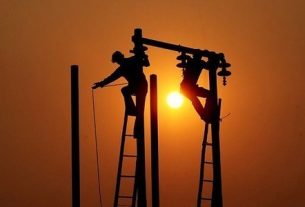ISLAMABAD: The Asian Infrastructure Investment Bank (AIIB) says the outlook for infrastructure construction in Pakistan is neutral but with high uncertainty.
The downward pressure on the rupee as well as cost-push inflation will drive inflationary pressure and increase the cost of construction materials, although the increase may be limited as prices have increased significantly in 2018, according to the first issue of AIIB publication: ‘Asian Infrastructure Finance 2019: Bridging Borders: Infrastructure to Connect Asia and Beyond’.
The AIIB, which was created three years ago with a specific mandate to provide development finance in infrastructure and other productive sectors, in its report says the cost of construction is likely to rise in line with the projected depreciation of the rupee.
In near-term, downward pressure on the exchange rate will drive inflationary pressure and increase the cost of construction materials – cost-push inflation is gathering momentum and the upward influence on import price inflation from a weaker rupee-dollar exchange rate s becoming more evident in the general level of prices.
Road construction would be less affected by currency uncertainty as the raw materials for highway projects are mainly machinery needs to be imported. In 2019, most projects will focus on transport and energy, with the energy sector primarily driven by China-Pakistan cooperation. These are largely power sector projects along the corridor.
The government had proposed Rs1.03 trillion in PSDP for 2018-19 budget, 62 per cent of which is to be spent on infrastructure, with the largest allocation to roads. However, it remains to be seen whether the International Monetary Fund (IMF )financial assistance will affect budget implementations.
The report says that ongoing development through cooperation with China – with a total project value of $62 billion – singles that infrastructure development will remain a key economic driver. However, it is unclear whether Pakistan will adopt IMF programme. Should the IMF programme be adopted, it is possible that IMF evaluation will require greater austerity measures, which may affect planned expenditure, the report says.
An increase in long-term borrowing costs is expected in the next 12 months due to interest rate pressure and monetary policy announcements by the Pakistani central bank. The new Pakistani government is in talks with the IMF to stabilise its economy.
Although the government bond market in Pakistan is sizable, the comparatively meager size of corporate issuances indicates the lack of depth in the country’s debt market.



